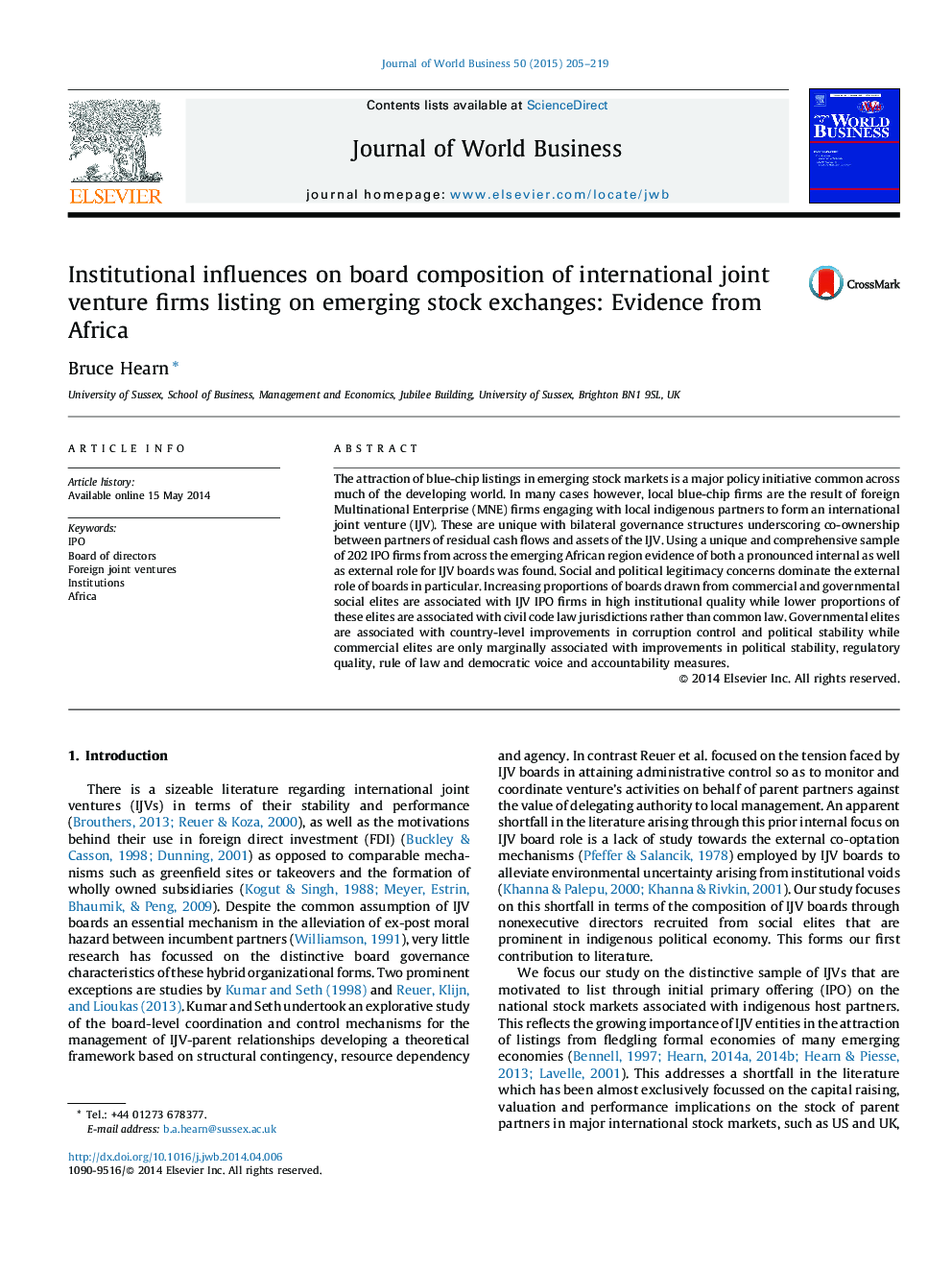| Article ID | Journal | Published Year | Pages | File Type |
|---|---|---|---|---|
| 1003328 | Journal of World Business | 2015 | 15 Pages |
The attraction of blue-chip listings in emerging stock markets is a major policy initiative common across much of the developing world. In many cases however, local blue-chip firms are the result of foreign Multinational Enterprise (MNE) firms engaging with local indigenous partners to form an international joint venture (IJV). These are unique with bilateral governance structures underscoring co-ownership between partners of residual cash flows and assets of the IJV. Using a unique and comprehensive sample of 202 IPO firms from across the emerging African region evidence of both a pronounced internal as well as external role for IJV boards was found. Social and political legitimacy concerns dominate the external role of boards in particular. Increasing proportions of boards drawn from commercial and governmental social elites are associated with IJV IPO firms in high institutional quality while lower proportions of these elites are associated with civil code law jurisdictions rather than common law. Governmental elites are associated with country-level improvements in corruption control and political stability while commercial elites are only marginally associated with improvements in political stability, regulatory quality, rule of law and democratic voice and accountability measures.
